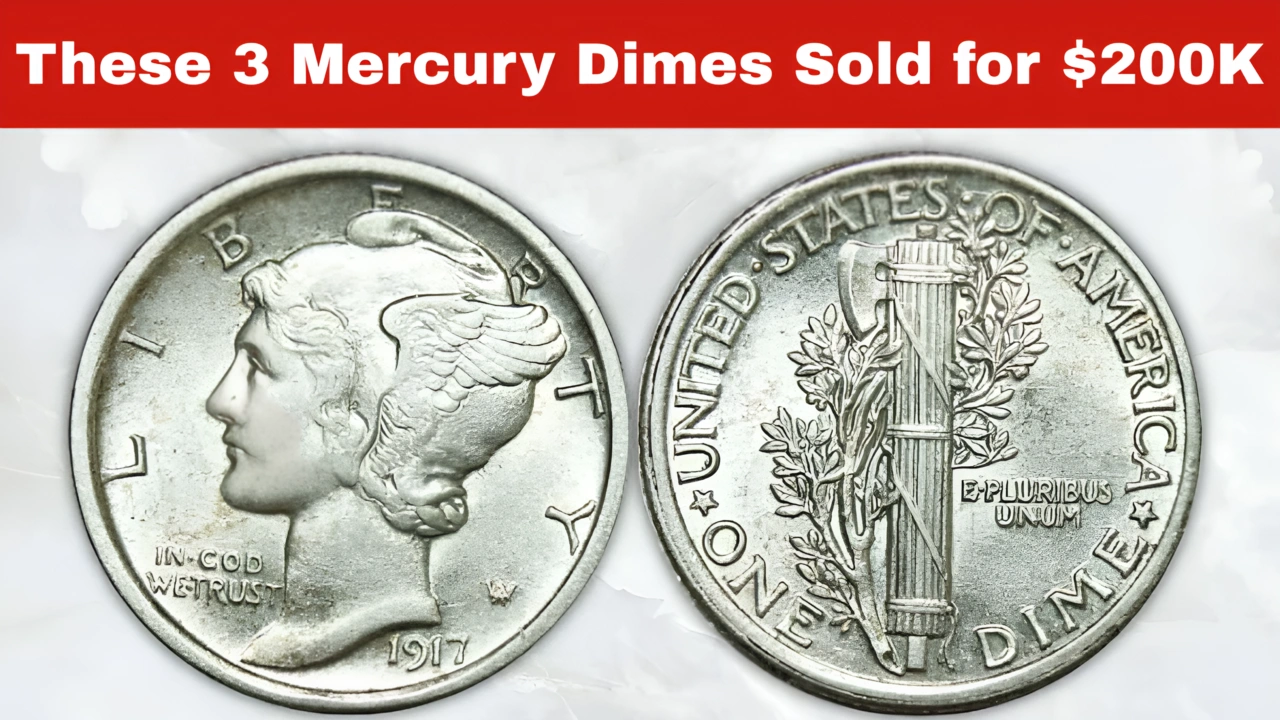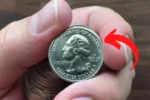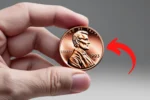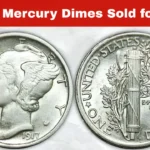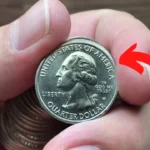Mercury Dimes: If you’ve ever come across a Mercury Dime in your coin jar or inherited a collection from a relative, you might be holding onto a small fortune without even realizing it. Some rare Mercury Dimes have sold for over $200,000 at auction, and their value continues to rise among collectors.
In this guide, we’ll uncover three Mercury Dimes that shattered records, explore what makes them so valuable, and help you understand whether you might have one in your possession.
What Is a Mercury Dime?
The Mercury Dime, officially known as the Winged Liberty Head Dime, was minted by the U.S. Mint from 1916 to 1945. Designed by renowned sculptor Adolph A. Weinman, the coin features Lady Liberty wearing a winged cap a symbol of freedom of thought. Many people mistakenly think the figure is the Roman god Mercury, which led to the coin’s nickname.
On the reverse, the coin displays a fasces wrapped in an olive branch, symbolizing unity and peace. This blend of artistic design and historical symbolism makes the Mercury Dime one of the most beloved coins in American numismatics.
Why Mercury Dimes Are So Valuable
While most Mercury Dimes are worth a few dollars in circulated condition, certain factors can skyrocket their value into the six-figure range:
- Low Mintage: Coins from years with limited production are harder to find.
- High Grade: Coins graded MS (Mint State) 65 or higher are considered investment-grade.
- Full Bands (FB): A designation awarded to coins with fully defined horizontal bands on the reverse. It indicates a strong strike and significantly increases value.
- Historical Significance: First-year issues, rare mint marks, and exceptional toning all play a role.
3 Mercury Dimes That Sold for Over $200,000
1. 1938-S Mercury Dime – $364,250
While the 1938-S isn’t particularly rare by mintage (8,090,000 coins struck), one example in MS 68+ Full Bands condition shocked the numismatic world when it sold for $364,250 at auction in 2019.
What made it so valuable? Its incredible luster and rainbow-like toning, combined with near-flawless preservation, made it a true trophy coin for high-end collectors.
2. 1919-D Mercury Dime – $218,500
Struck at the Denver Mint, the 1919-D had over 9.9 million produced. Yet, high-quality examples with Full Bands are extremely rare. In 2000, an MS 66 FB specimen fetched $218,500 at auction.
The challenge lies in the coin’s strike. Most 1919-D dimes were weakly struck, making sharply defined versions a top-tier collector’s dream.
3. 1916-D Mercury Dime – $195,500
Known as the Holy Grail of Mercury Dimes, the 1916-D was the series’ inaugural issue and had a shockingly low mintage of just 264,000 coins.
An MS 67 FB example sold for $195,500 in 2010, but even lower-grade versions can be worth thousands. If you own a 1916 Mercury Dime, check for the “D” mintmark on the reverse it could be your golden ticket.
Summary Table: Mercury Dimes That Broke $200K
| Year | Mint Mark | Grade | Sale Year | Price Realized |
|---|---|---|---|---|
| 1938 | S | MS 68+ FB | 2019 | $364,250 |
| 1919 | D | MS 66 FB | 2000 | $218,500 |
| 1916 | D | MS 67 FB | 2010 | $195,500 |
Could You Be Holding One?
It might seem like a long shot, but rare Mercury Dimes do turn up in collections, flea markets, and old piggy banks. If you come across one especially from 1916-D, 1919-D, or 1938-S it’s worth getting it professionally evaluated by a third-party grading service like PCGS or NGC.
Even if it’s not a six-figure coin, Mercury Dimes in good condition can still be worth significantly more than face value.
Final Thoughts
The Mercury Dime isn’t just a relic of the past it’s a piece of American artistry and history that still holds real value today. For coin collectors and casual hobbyists alike, the dream of finding a hidden gem is always alive.
So next time you go through your change jar or look through an old coin collection, keep an eye out you just might be holding a Mercury Dime worth more than $200,000.
FAQs
What years of Mercury Dimes are most valuable?
The most valuable Mercury Dimes include the 1916-D, 1919-D, and high-grade examples from 1938-S. Key dates and coins with Full Bands tend to fetch the highest prices.
What does “Full Bands” mean on a Mercury Dime?
“Full Bands” refers to the complete and clear separation of the horizontal bands on the fasces on the reverse of the coin. This signifies a strong strike and increases the coin’s value.
How can I tell if my Mercury Dime is valuable?
Check the mintmark, year, and condition. Coins should be evaluated by a reputable grading service to determine their true market value.
